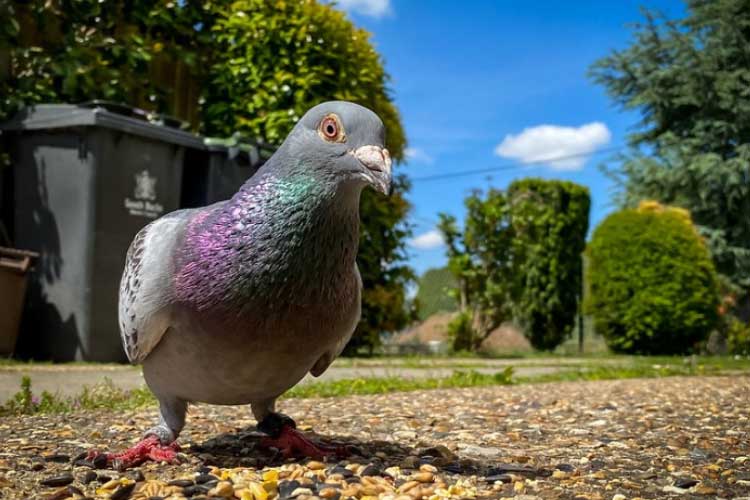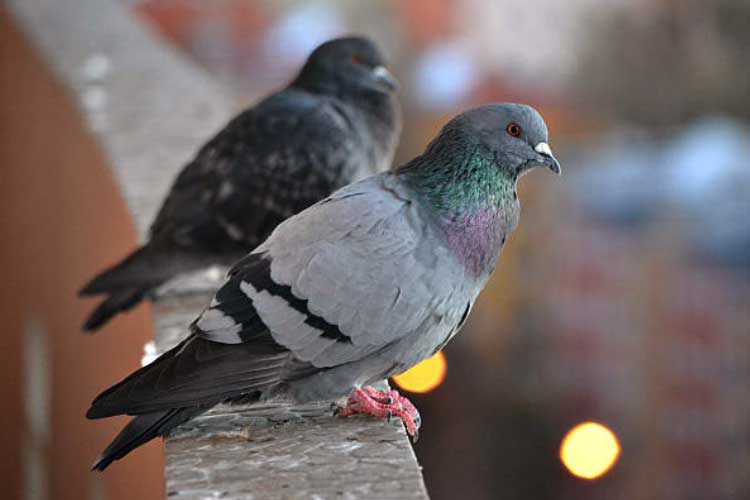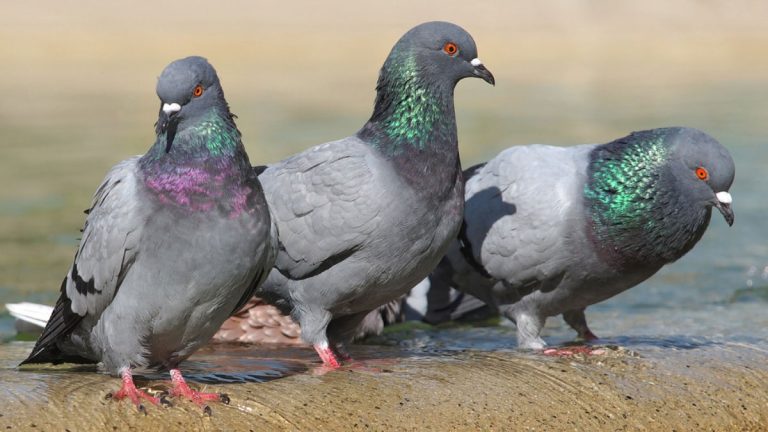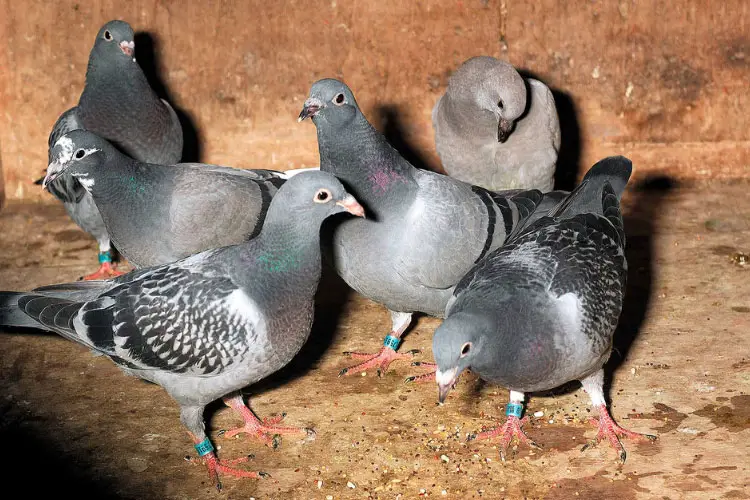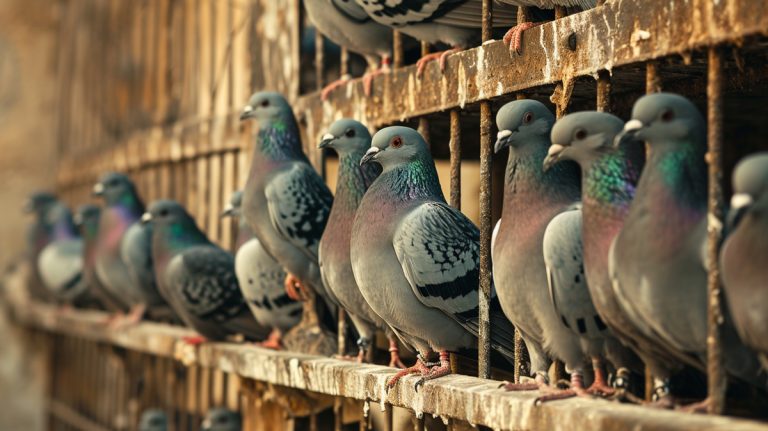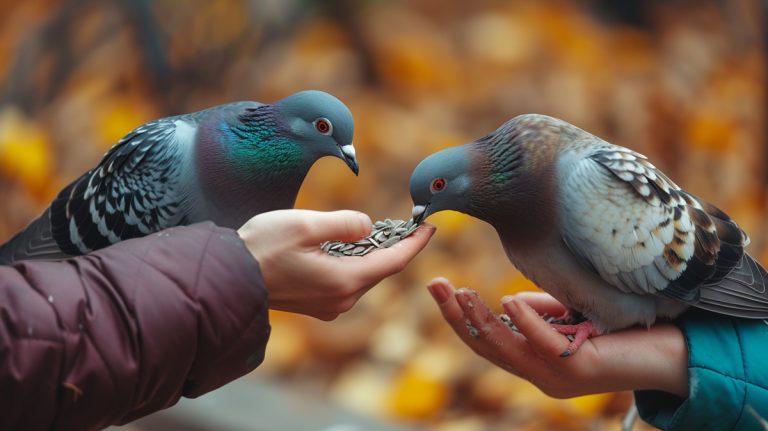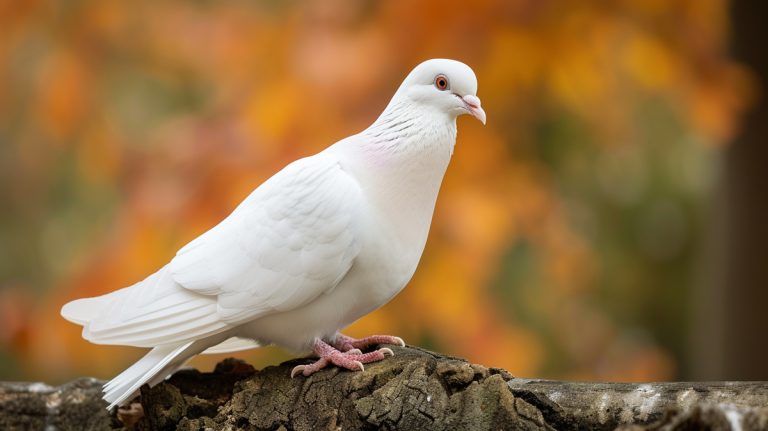Can Pigeons Talk and Mimic Human Voices?
Pigeons are mesmerizing creatures and have captured the attention of humans for centuries. They are mainly known for their intelligence, adaptability, and social nature. Among so many myths about feathered creatures, human mimicry is the most popular one.
So, can pigeons talk and mimic human voices? In short, the answer is no. But it needs an in-detailed discussion. Pigeons, in general, have a limited range of voice and they cannot mimic humans.
In this article, we will try to elaborate on this fact. Stay connected, you will be surprised to know the reality.
Can Pigeons Talk and Mimic Human Voices? Walkthrough the Answer
As mentioned before, the answer needs a comprehensive walkthrough. This thing doesn’t come all of a sudden. Of course, something unlikely happened about the sounds pigeons make, from where the assumption comes from.
However, we will try to talk about different features of pigeon characteristics, which may be helped you to come to a decision.
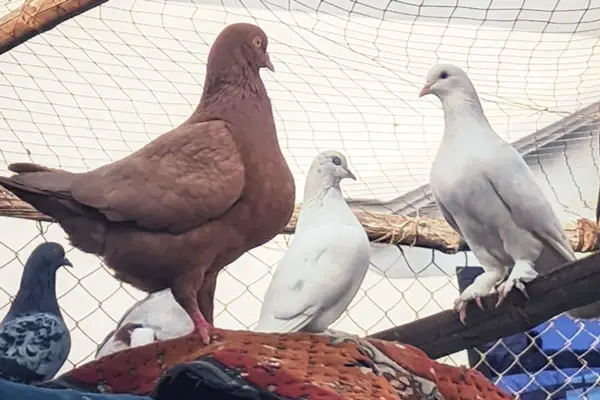
So why can’t a pigeon imitate a human? It is primarily due to pigeons’ brain anatomy and language processing system. Other factors may also have an impact.
The Anatomy of Pigeons’ Vocalization System
The pigeon’s vocalization system is made up of a simple sound organ called the syrinx. Unlike humans, pigeons don’t have a larynx and vocal cords, which play a crucial role in speech production.
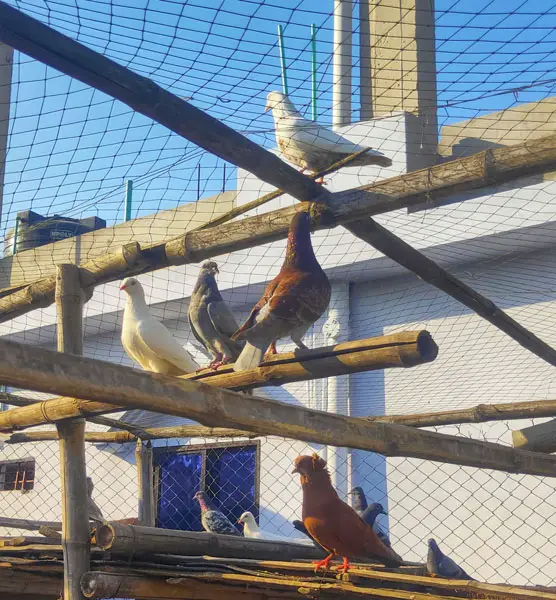
Pigeons are noted for their cooing sounds, which are produced by the syrinx. They find it challenging to mimic human sounds because of the syrinx’s limited capacity to produce sophisticated vocalizations.
Brain Structure and Language Processing
Another factor that prevents pigeons from mimicking human voices is their brain structure. Humans have a highly developed brain that is capable of processing language and producing speech.
On the other hand, pigeons have a much simpler brain structure that is not designed for language processing. Pigeons’ brains are mainly focused on sensory processing, which is essential for their survival in the wild.
Evolutionary Adaptations
The differences in the vocal anatomy and brain structure of pigeons and humans can be traced back to their evolutionary adaptations. Pigeons grew to have a simple vocal system that was suitable for their needs in the wild. These may include attracting mates, warning of danger, or locating food.
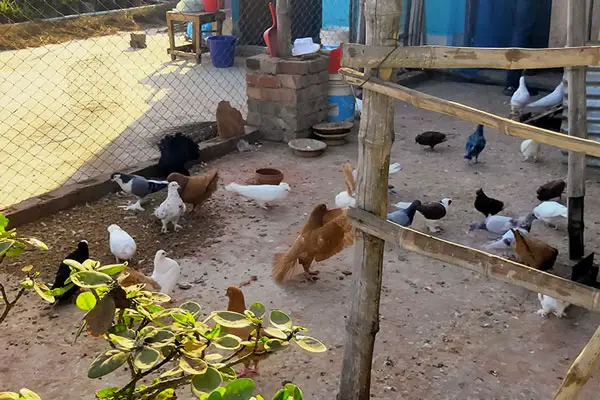
So the development of their vocal system was not focused on language processing or mimicking human voices. Therefore, pigeons can’t mimic humans if I say it straight.
The Lack of Complex Vocalizations
Pigeons are often known for their distinctive cooing sounds. They use these cooing sounds to communicate with other members of their species. Likewise, pigeons are not capable of complex vocalizations like parrots and some other bird species.
Pigeons Talking: Is it a Myth or Reality?
Despite the lack of evidence, there have been numerous claims that pigeons can mimic human voices. These claims are often based on anecdotal evidence and are not supported by scientific research.

It is important to approach these claims with skepticism and to rely on scientific evidence when determining the vocal capabilities of pigeons.
Brain Functionality: Pigeons vs Parrots
Parrots are considered one of the most intelligent bird species, capable of mimicking human speech and even understanding simple commands.

The table below shows something that may make the answer clearer why parrots can mimic but pigeons can’t.
| Brain Feature | Pigeon | Parrot |
| Cognitive Ability | Highly Intelligent | Highly intelligent |
| Brain Size | Small | Big |
| Brain structure | Does not have a cortex | Have a well-developed cortex |
| Vocalization | Limited Range | Well ranged |
We already know, pigeons have, in general, a limited range of vocalization. Parrots, on the other hand, have great vocalization. So, this is a good perimeter that parrots can mimic.
Cortex is an important thing that nearly can prove pigeons can’t mimic or adopt human talk. This functionality includes memory, thinking, learning, reasoning, problem-solving, emotions, and consciousness.

As a consequence, parrots have it in their brain. Birds with the ability to communicate must have a strong memory. Cortex will assist them in this situation.
Pigeons, on the other hand, lack a cortex in the brain. However, this does not indicate that pigeons are boring. Some studies believe they are even more intelligent.
So, pigeons can talk and mimic humans – it is a myth only. It has no scientific proof or evidence behind this.
If you’re interested in learning more about pigeon behavior and physiology, you might find our articles on why do pigeons stand on one leg and why do pigeons have red eyes helpful. Our article on why do pigeons stand on one leg sheds light on the behavioral and physiological reasons behind this common pigeon pose, while our article on why do pigeons have red eyes explores the anatomical and evolutionary factors that contribute to this distinctive pigeon feature. Check them out to deepen your understanding of pigeon behavior and physiology.FAQs
For further inquiry, have your eyes on this section. You may learn a little more.
Yes, pigeons may be taught to talk. However, the output is unlikely to be good because they are known to be incapable of mimicking people. However, some researchers recently trained pigeons and claimed that the pigeons could spell some words with 70% accuracy.
Pigeons may eventually be able to understand human speech, but it will take time. If they have been exposed to a certain circumstance, they may comprehend it.
No, in general. They frequently communicate by calling each other and making unique sounds. However, it has not been seen that pigeons mimic other animal noises.
Conclusion
So, if you are asked, can pigieons talk and mimic human Voices, the answer will be negative. Their brain structure and language processing is the reason behind this. However, some researchers believe that pigeons can talk if they are properly educated.
Despite their limited brains, they will be able to mimic people, like many mimic-mastered birds such as parrots. Although they cannot mimic human speech, they are still highly intelligent and social birds with a rich and complex communication system.
